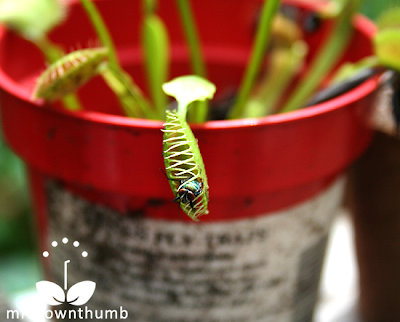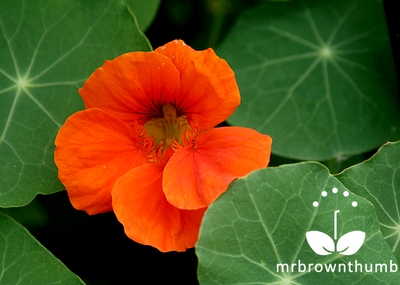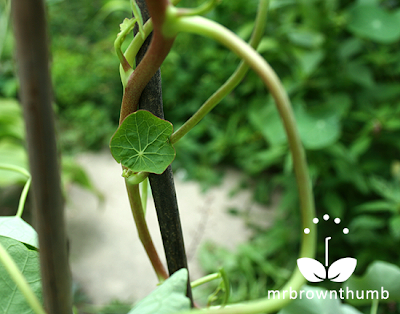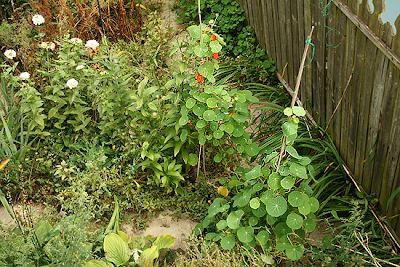While violas will readily reseed in the garden I wanted to collect seeds from my Viola 'BlackJack' blooms as a backup because I was growing them in a small terracotta pot on my porch garden. Before I could collect seeds I had to make sure the blooms were pollinated. The tiny blooms on these plants made finding the right tool difficult, artist brushes were too large so I ended up using a hair from my beard. Yes, you read that right. It seems like a lot of trouble to go through for a garden annual but the seeds for these violas were kind of expensive.
Search
25.8.10
17.8.10
Hothouse Flower and the Nine Plants of Desire
Hothouse Flower and the Nine Plants of Desire is the debut novel by Margot Berwin. It centers on, Lila, a
is the debut novel by Margot Berwin. It centers on, Lila, a  30-something advertising copywriter who finds herself starting over after a divorce. Like many who find themselves beginning anew she figures that her NYC apartment could use a houseplant, of course. Gardeners, houseplant growers in particular, will appreciate this light and fun read. If you find yourself predicating what will happen next it is not because the plotline is trite. It's because we (houseplant growers) have all been there before. We know that houseplants are gateway plants and they always come with dealers. Unscrupulous plant dealers. They are charming and full of information and they're willing to sell you plants that are more expensive after giving you a taste.
30-something advertising copywriter who finds herself starting over after a divorce. Like many who find themselves beginning anew she figures that her NYC apartment could use a houseplant, of course. Gardeners, houseplant growers in particular, will appreciate this light and fun read. If you find yourself predicating what will happen next it is not because the plotline is trite. It's because we (houseplant growers) have all been there before. We know that houseplants are gateway plants and they always come with dealers. Unscrupulous plant dealers. They are charming and full of information and they're willing to sell you plants that are more expensive after giving you a taste.
10.8.10
Venus Flytrap Catches Fly
The Venus Flytrap, scientific name Dionaea muscipula, is one of those plants that every couple of years ends up in my plant collection. Venus Flytrap care requirements aren't rocket surgery, but it is the one carnivorous plant that most people have trouble with. The Venus Flytrap I'm currently growing was a gift from a gardening friend. Another friend, not a gardener, called me couple of days ago to talk carnivorous plants. In the course of our conversation I mentioned the recent plant accquisition and how it hadn't caught any flies in the two weeks I have owned it. I even brought the Venus Flytrap indoors where I practically chased flies around the house shoving it at them saying, "Eat, Eat!" Today I decided to place the Venus Flytrap outdoors where I could take some pictures and perhaps it would catch an insect or two. Venus Flytrap pictures of it in action catching a fly in my container garden, below. My Venus Flytrap catches a fly, and I have pictures to prove it.
4.8.10
Large Milkweed Bug, Oncopeltus fasciatus
A large milkweed bugs, Oncopeltus fasciatus, is a red-orange and black bug that you'll commonly find on and around milkweed plants. From a distance large milkweed bugs look a lot like box elder bugs, but they're larger and have different coloring. If you're growing a wildlife garden and plant milkweed plants for butterflies and bees you may already be very familiar with the large milkweed bug.
2.8.10
Climbing Nasturtium "Spitfire"
Nasturtiums are my favorite annual to plant in the garden because they're very versatile plants. They're easy to start from seed, they produce beautiful, edible blooms and they grow very well in poor soils. Whether I plant them in the ground or in containers nasturtiums never ask for much attention. In fact, nasturtiums in my garden thrive on benign neglect. I plant nasturtium seeds early in the spring and forget about them until it is time to collect nasturtium seeds. Last year I grew Climbing Nasturtium "Moonlight" in the garden for the first time, this year I'm growing Nasturtium, Climbing, "Spitfire."
Given my experience growing nasturtium "Moonlight" last year I was already prepared for how nasturtium "Spitfire" would react to growing in my garden. The microclimate in the garden must be too warm for the climbing varieties of nasturtium. I'm not complaining, really, the same microclimate allows my Voodoo Lily to overwinter. The climbing nasturtiums don't seem to start vining, or sending out long shoots, until about August. If you read the post on "Moonlight" you'll see that the day after I complained about them not vining or trailing to Renee's Garden the plant sent out a long vine. "Spitfire" is a couple of weeks ahead of where "Moonlight" was last year. Today I had vines long enough to actually start training them up the bamboo stakes in the cinder block pots I planted them in.
As the flower bud opens "Spitfire" looks like it will be a really red nasturtium bloom, but as you can see from the photo above it is more orange than red. Renee's Garden, who I got these seeds from, describes them as a "scarlet orange." The bloom color looks like molten lava to me.
"Spitfire" has foliage that is an average green, unlike some nasturtiums that have a blueish hue to them, the darker foliage of nasturtium "Empress of India," or the variegated foliage of nasturtium "Alaska." When the foliage gets long enough to start training up a support structure like a trellis or a fence all you have to do it wind the longest stems up and around. Some stems may break near the tips but they'll quickly be covered up my more vines and leaves, and of course more blooms.
In my garden nasturtiums continue to grow well after the first frost and won't die down completely until we get a really good freeze. This being my second year of growing climbing nasturtiums I think I've exhausted my interest in growing them. While they're my favorite garden annual I think the climbing varieties don't perform as well in the heat of summer as the mounding varieties. Next year I'm going back to performing nasturtium diversity and planting several varieties at the same time.
Update: In early October the rest of the garden is starting to fade and turn brown but 'Spitfire' continues to grow and climb up the trellis I made for them out of bamboo stakes.
Where to Plant Nasturtiums.
The mounding varieties of nasturtium look beautiful planted at the edges of garden beds or paths. Even in containers or window boxes they spill over the sides of pots enough to add interest and movement. The climbing nasturtium varieties like "Spitfire" and "Moonlight" would also work well as a ground cover, if you don't want to train them up a support or drape them over the side of balcony gardens.
Previous Posts on Nasturtiums:
Collecting Nasturtium Seeds Video.
Subscribe to:
Comments (Atom)










